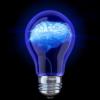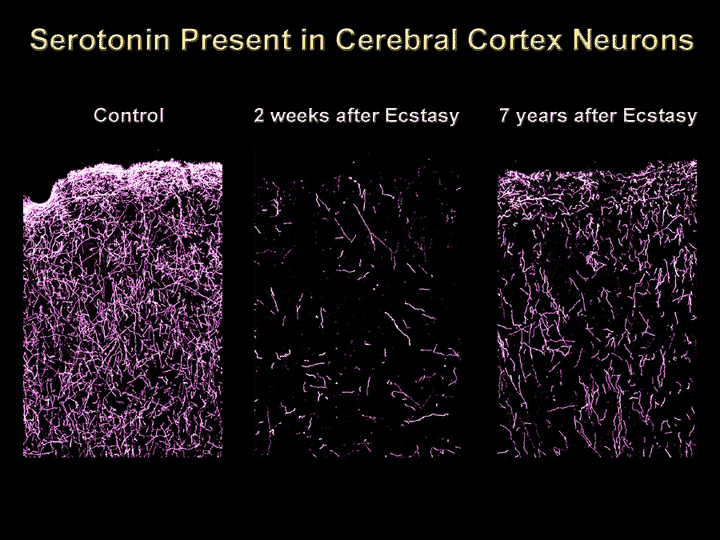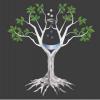So, a little relevant back ground about me....
I am 32 years old and have been suffering from PTSD (officially) since July 2007 (although I think I have had it since 2003). I've been on just about every prescription they could prescribe and none of them have helped - most of them actually made me want to roll over and die. After my discharge from the military, I couldn't hold a job, lived with my parents, and had no friends to speak of. This lasted almost 3 years. It was May 2010 when I finally decided the doctor's didn't have "my cure" and I took things into my own hands. Diet, exercise, even relocated to a place where I thought I would encounter less "triggers" (people mostly) and a bit more relaxing then the bustling city center I was in.
[Note - I have never done any drugs in the past except for those prescribed by my doctor - except for alcohol.]
I eventually was able gain control of my symptoms without the need for medications. My drinking was and is still fairly heavy. Quite a few shots of scotch or bourbon straight up just about every night. Since relocating, exercising, eating right, living in the country, (still drinking) and some group therapy I have gotten married and had 3 kids, been able to hold a job and for the most part have been able to maintain social relationships. Although, I really only have 2 actual friends I trust enough or actually want to hang out with.
In November 2014, I suffered a huge break down. It wasn't my first since relocating in 2010, but this was by far the worst. I disappeared for 2 days and showed up back at my home, scaring the hell out of my kids and wife, unable to get myself to bed after passing out on the kitchen floor (all according to my wife). I don't remember anything from those two days. Since then I have been extremely exhausted, numb, detached, and really feel nothing. I've always been able to bite my tongue, so to speak, in situations where it was necessary. Now, I find myself insulting people, pissing people off by blurting out disrespectful remarks, and extremely shut down. I can't empathize with my children. I am sleeping on the couch most nights. My job is suffering big time since I can't find the motivation to do anything throughout the day. Lucky for me, the General Manager is an old family friend and has been very understanding, but I can tell his patience is wearing thin.
[I know many would say to seek professional help and I have. All but one doctor wanted to put me back on anti-depressants and the other one wanted to give me a tranq... wasn't doing that.]
I have been researching nootropics since the beginning of December. My first stack was L-theanine and caffeine (caffeine only in the morning in form of coffee). I have to say, it works, but I have to take upwards of 400mg of L-theanine twice a day (my second dose is without caffeine and around lunch time). Sometimes I will take another 600mg right before laying down at night. It calms me enough I can usually get some sleep. While it has kept an edge off, helped ease some tension, it wasn't enough. I ordered phenibut after reading about how it could help with PTSD. I tried normal doses of 500mg and 1g to no avail. Didn't feel anything. I laid off it for a week and then tried 2g. I thought I felt a sense of normalcy for about an hour. Again, didn't last, so I think it was just in my head - as if I wanted to feel it. Laid off another week and tried 2.5g. This time I slept for about 3 hours, but it was after my nightly 2-3 drinks (even though I knew I wasn't suppose to drink on it). My best sleep in months! I know it can be addicting, especially at higher doses, so I laid off again for about 5 days.
I had some L-theanine (about 400mg) one morning at about 8am with my coffee. It worked in the past and I absolutely needed a decent day (I had family coming over). Then I thought, why not add some phenibut with the l-theanine. So I took 2g of phenibut about 15 mins after the l-theanine. Amazing. I felt very relaxed. My thoughts stopped focusing on the things I couldn't change. I was able to play with my kids without being "Grumpy". Family visit went well, even though I didn't talk much (which is a good thing because normally I'd be very insulting and disrespectful). The only problem was I couldn't focus at all. All I wanted to do was chill and not think or talk. While that helped, it's not what I am looking for. I even got a "buzz" type feeling like I had just drank the perfect amount of alcohol without being drunk.
I ordered a few nootropics in search of something that would help. I've read post after post about people's experiences, taking notes and comparing, cross referencing, and comparing again. I ordered the nootropics that appeared in most the posts/sites so I am guessing they are the most common.
Nootropics I ordered:
- Noopept
- Aniracetam
- NALT
- Alpha GPC
- 5-HTP
- L-theanine
Now for the reason behind this post, and if you made it this far, thank you for sticking with it!
I tired Aniracetam (250mg twice a day) and Alpha GPC (300mg once a day) with a nice fatty sausage and egg butter biscuit (and after lunch for the second Aniracetam dose). Taking the nootropics about 15 minutes after eating. I did this for a week and nothing. Well, not nothing... I felt spaced out more than usual. Kind of like I have been awake for 2 days straight.
Last week I started noopept. I heard extremely good results with this at 30mg per day (15mg twice a day). I did the first 3 days orally with a smoothie (flax seed, greek yogurt, bananas, kale, honey and almond milk). After 3 days I felt nothing, so I started doing it sublingually for the last 3 days.... 15mg twice a day... nothing.
Today I did aniracetam, noopept, alpha GPC, caffeine (in form of coffee) in the morning and by lunch I was a zombie at my desk. After lunch I took noopept (15mg) and aniracetam (250mg) again. Completely exhausted, zoned out, detached and numb... pretty much normal. Usually coffee gives me a boost... hell, even when I drink a Monster I get some "zap" and wake up... but after an afternoon Monster... nothing.
Should I give them more time to work? I did read where aniracetam took 2 weeks for some people, but noopept I have read it only takes a few hours at most. Or maybe my brain is just so far gone nootropics need higher doses than normal or won't work at all?
Anyone have any suggestions or ideas?
Thank you for bearing through all that if you made it this far!





















































